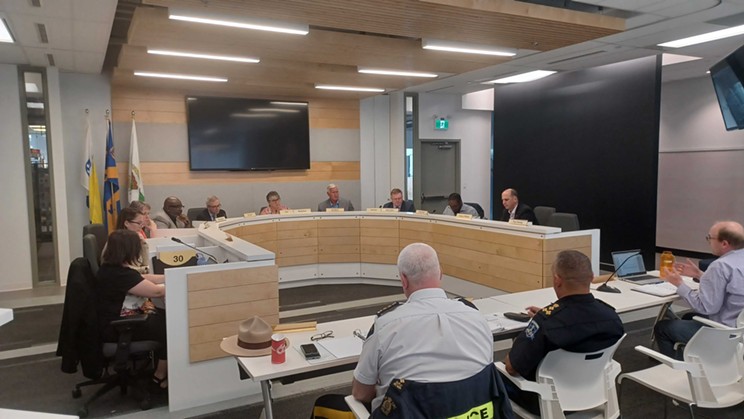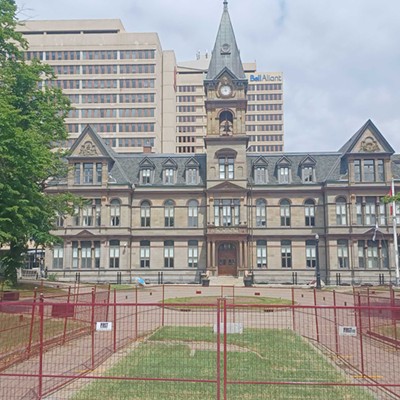After a few years of research city staff and the cops have figured out what is required for Halifax Regional Police to get body worn cameras. Body worn cameras are coming to Halifax with the RCMP and thanks to the direction given to police from the Board of Police Commissioners, the Halifax Regional Police are also planning to get some body worn cameras. Now that the policy work is done they’ll be asking for funding in the next budget year.
In a presentation to the Board of Police Commissioners, staff explained a few things we need in order to make body cameras work for the HRP. The first is that cops need an updated software system to collect and store digital evidence. The current way cops collect digital evidence is still a bit of an ordeal and adding body worn cameras to this system would not be feasible. As a result cops are looking at a Digital Evidence Management System (DEMS) with cloud storage to manage body cam evidence as well as other digital evidence like stuff ripped from cell phones.
Commissioner Gavin Giles asked about the cloud storage vendor planned for the evidence management. Giles wanted to stress that the cloud, aka other people’s computers, needs to be based in Canada. If vendors store this evidence in the USA then the American Department of Homeland Security could go rooting around in Halifax’s stored digital evidence willy-nilly. The police presenters assured the commission that servers will be in Canada.
The other thing the body worn camera program needs is money—$2.4 million per year plus an additional four to six civilian salaries which average around $80,000 per person if benefits are included. The body worn cameras fall into a bit of a weird place because body worn cameras are half-capital expenditure (one time expense to buy the cameras) and half operational expenses in the server contracts and new employees. As of right now body worn cameras will be debated during the next budget season.
Rookie commissioner Greg O’Malley asked if there were other projects that will be coming forward that will require capital funding that are currently unfunded, like the new police HQ. Staff responded that yes there are a lot of other projects coming down the pipe that are unfunded, but their future is also uncertain, so it’s possible that they’ll never need funding as they die a slow bureaucratic death of neglect as the needs of the city move forward without them.
And as an administrative note, this discussion is only about the Halifax Regional Police as the RCMP is getting body worn cameras and communities in Nova Scotia were some of the testing grounds of the RCMP’s pilot. The RCMP gave the Board an update about their pilot and talked about vendors and lauded the fact that their chosen provider does something called solutions as a service. And it is worth pointing out that other industries, like video games, have made the move to game as a service which has led to things like microtransactions, pay to win, and legalized gambling for children with in-game loot boxes. Not to say that the body worn camera companies will try to minimize their services to maximize their profits, but it’s important to understand the motivations and potential vulnerabilities of trusting private companies to be in charge of managing our evidence “as a service.”
The Board also threw together an ad-hoc committee to see if they should do their own resident survey or if they should just keep throwing a police question or two into the HRM’s annual public feedback survey. Commissioners Lisa Blackburn and O’Malley are the two members of this ad-hoc committee.
The Board also updated and formalized their budget meeting schedule for non-election years. This schedule is informed by mistakes made and lessons learned from the less than ideal roll out of this new process in the 2024/25 budget season. And as usual, the meeting started off with the police chief updates which were, as usual, a waste of time. If communicating these types of surface level updates really are integral to police governance as suggested by their permanent place on the agenda, they would be better communicated in a written report submitted to the board at each meeting.













